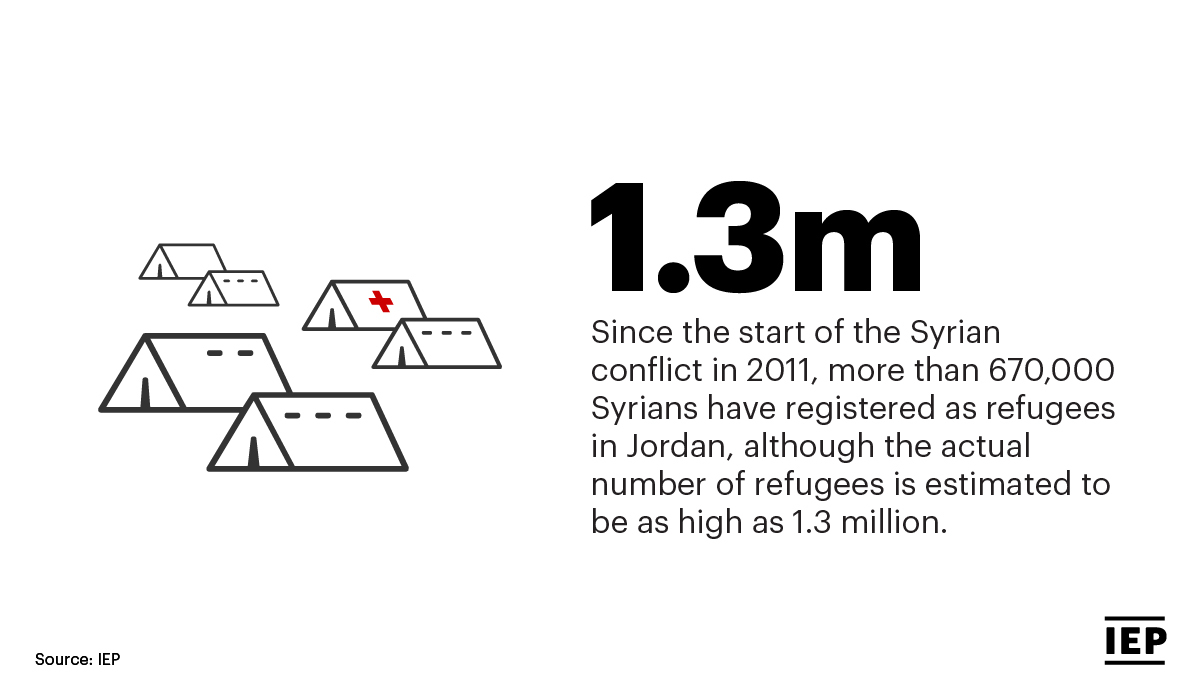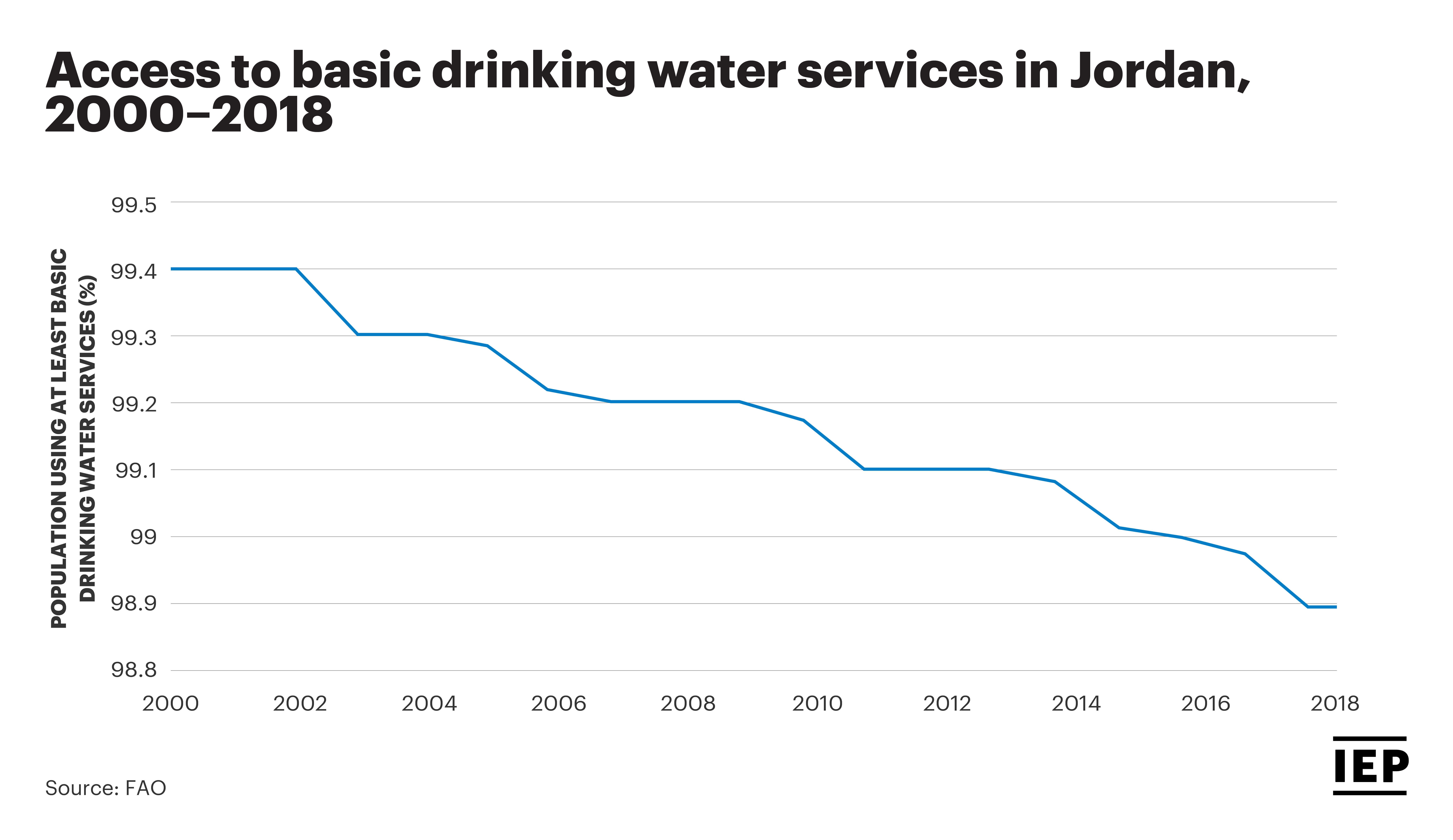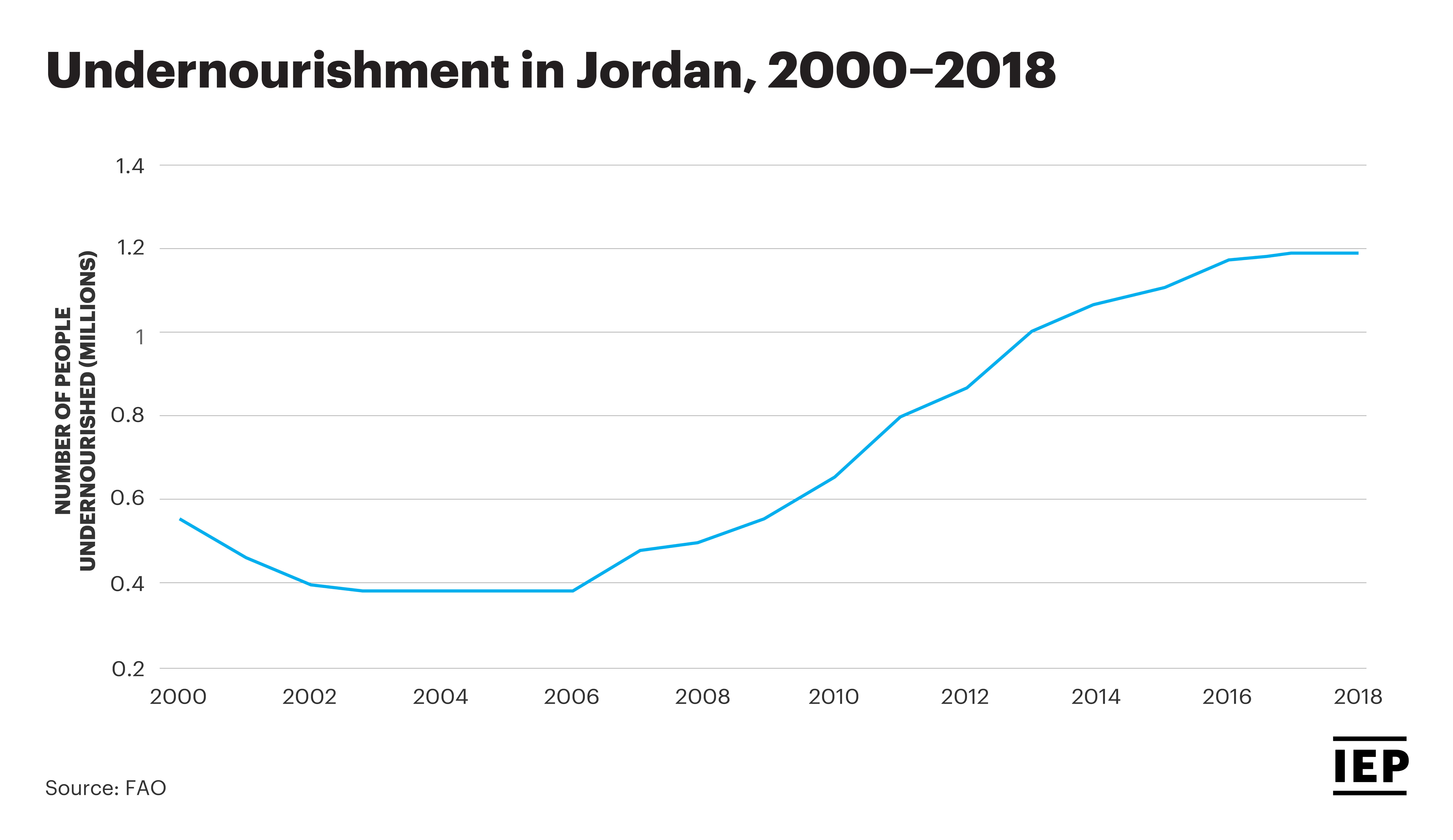Jordan is a high Positive Peace country, ranking 62 out of 163 nations assessed in the 2019 Positive Peace Index. The country has sheltered a disproportional amount of Syrian refugees since 2011, greatly assisting the international community in managing the crisis.
The country of Jordan scores two in the 2020 Ecological Threat Register (IEP) and faces high exposure to droughts and water stress. Jordan is facing extremely high water stress and withdraws more than 80% of renewable water resources each year.

Jordan’s high population growth — a result of natural growth and the arrival of large numbers of refugees from neighbouring Syria — placed additional strain on the country’s already limited water supply.
Since the start of the Syrian conflict in 2011, more than 670,000 Syrians have registered as refugees in Jordan, although the actual number of refugees is estimated to be as high as 1.3 million.
The vast majority of registered refugees — 84% — live in urban areas, while the remaining 16% live in three refugee camps.

In 2018, more than 98.9% of the Jordanian population had access to basic drinking water services, while an estimated 93.8% had access to safely managed drinking water services. Access to basic drinking water services in Jordan has declined continuously since 2000.
Along with population growth, increasing agricultural and industrial capacity also contributed to diminishing water resources. Areas of inefficient water management practices and water theft will likely exacerbate the effects of climate change in Jordan as levels of precipitation become less certain.

Food security also remains a critical concern in Jordan. Between 2000 and 2018, the number of undernourished has more than doubled, reaching 1.2 million. Food security is a particular concern among the refugee population in Jordan. In 2016, approximately 28% of Syrian refugees were thought to be food secure. This has since declined to 23% in 2018. The stressors are discussed in terms of Positive Peace Pillars below.